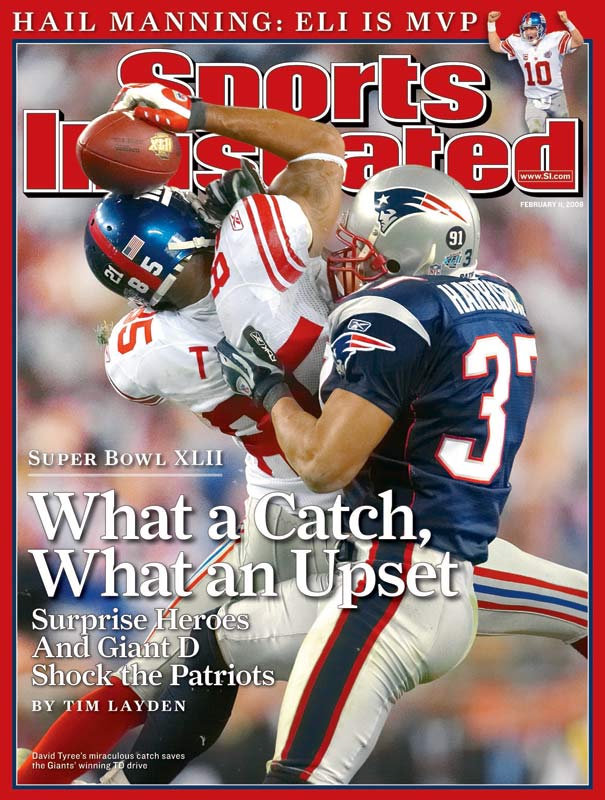Think about the factors it takes for a team to dominate a year or even barely survive the gauntlet of games undefeated. Factors such as competition, injury, weather, scheme, and I forgot to mention completion among many others. The college level has struggled with the fact that perfection is not an accurate measuring stick for its eventual champion thus several methods have been implemented to pacify its fans.
The current format allows for a panel of voters rank (for some reason the NCAA folks love subjective rankings) teams and the top four enter a playoff. Which begs a few questions from me:
1. Why rank teams beyond four?
2. Why must you have preseason and weekly polls if the final one counts?
3. Why are you still utilizing the coaches and AP polls if they have no influence on your playoff ranking?
Looking back at the League, the playoff featuring twelve of the thirty-two teams that performed favorably on the field with all others left to contemplate what could have been. Stinging together a couple late season wins can propel a team deep into the playoffs as well. The small percentage of post season teams also lends to the importance of winning as many games as possible; winning key games is crucial because only two teams per conference are awarded a post season berth outside the division champs.
In the NCAA, getting bowl-eligible is some sort nod of success, but the increasing number of bowls has lead to an higher instance of 7-5 and 6-6 teams going bowling. Mediocre teams and coaches get a continued pass for just making it above .500 on the season which pales in comparison to professional standards of success where constantly finishing 11-5 can equal missing the playoffs annually and lead to the termination of a coach for not getting over the hump.
I was once told that to expect college teams to perform at high level is ridiculous because that runs the risk of injury. In an essence that logic upholds the notion that the stakes of the system justifies the consideration of players as more than just amateur athletes. As a matter of fact, it seems that everyone has claim to financial gain except for fans and players.
In the NCAA, getting bowl-eligible is some sort nod of success, but the increasing number of bowls has lead to an higher instance of 7-5 and 6-6 teams going bowling. Mediocre teams and coaches get a continued pass for just making it above .500 on the season which pales in comparison to professional standards of success where constantly finishing 11-5 can equal missing the playoffs annually and lead to the termination of a coach for not getting over the hump.
I was once told that to expect college teams to perform at high level is ridiculous because that runs the risk of injury. In an essence that logic upholds the notion that the stakes of the system justifies the consideration of players as more than just amateur athletes. As a matter of fact, it seems that everyone has claim to financial gain except for fans and players.
In no way am I saying that the NFL, the bureaucracy of self virtue, has the correct moral vision just because it pays players and awards teams based on a formula of on-field success. I am saying that there are numerous fans, too many to count, who follow both renditions of the same sport and measure them by two different standards. Even high school football measures success by on field performance in addition to a ranking system.
 Continue your debates about who should be in the CFP top 4. Continue to uphold average teams and coaches with bowl appearances and wins. Continue to watch teams play in holiday bowl games for prizes and money when they avoid one another during the regular season for various reasons that include the lack of financial gain and risk of losing the opportunity to receive bowl invitations. By the way, the Patriots went undefeated in 2007 until they lost in the Super Bowl; few debate whether the Giants are the champions of that season.
Continue your debates about who should be in the CFP top 4. Continue to uphold average teams and coaches with bowl appearances and wins. Continue to watch teams play in holiday bowl games for prizes and money when they avoid one another during the regular season for various reasons that include the lack of financial gain and risk of losing the opportunity to receive bowl invitations. By the way, the Patriots went undefeated in 2007 until they lost in the Super Bowl; few debate whether the Giants are the champions of that season. 
No comments:
Post a Comment